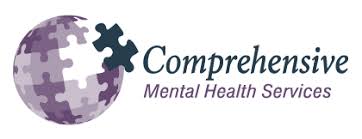Blog
28 Jan Kansas Health Foundation Awards $22,384 Grant to CASA of Johnson and Wyandotte County
CASA of Johnson and Wyandotte County recently received a grant for $22,384 from the Kansas Health Foundation to recruit, screen, train, and supervise volunteers as advocates for children involved in the Johnson Country District Court system. CASA of Johnson and Wyandotte Counties’ (CASA) Child in Need of Care Program will provide volunteers to act as advocates for children involved in the court system due to maltreatment. CASA volunteers work one-on-one with children to develop relationships and ensure that the children receive the support and services they need. Children who have suffered trauma as a result of abuse or neglect often require mental health services to address the effects of the trauma. CASA volunteers dedicate themselves to the best interests of the children, tenaciously lobbying for the children’s access to the needed mental health services.27 Jan Ira & Florita M. Brady Foundation Supports CASA of Johnson and Wyandotte Counties with a $3,000 Grant
CASA of Johnson and Wyandotte Counties recently received a grant for $3,000 from the Ira and Florita M. Brady Foundation Fund to support the advocacy of children involved in the court system due to abuse, neglect, custody, or visitation disputes. These funds, which supported CASA’s General Operating Expenses, were very useful in providing advocates to uphold the best interests of abused and neglected children in both Johnson and Wyandotte Counties.26 Jan Metro Lutheran Ministries (MLM) Receives $25,000 Grant From the State of Missouri Department of Corrections, Community Reentry Fund
Metro Lutheran Ministries (MLM) was recently awarded a $25,000 grant from the State of Missouri Department of Corrections, Community Reentry Fund to support their Learning to Earning employment program. Learning to Earning is a client-focused employment services program. Clients can take job readiness classes to learn how to improve their resumes and their interview preparation. Staff teaches clients about strategically searching for appropriate positions and about the online application process. MLM provides computer skills training to those who need it in order to complete these applications. Staff help clients fill out applications and track their job search progress through logs. A phone bank is available to clients to make follow up contact to potential employers to call about the status of application and try to set up interviews. Frequently, clients need to be encouraged to take this step and guided on how to do this without seeming pushy. Bus passes are available to clients who need to travel to and from interviews.25 Jan ArtsKC Awards Grant to Te Deum, Inc
Te Deum, Inc. recently received a grant for $750 from ArtsKC to support the overall mission of the organization. Te Deum, Inc.’s vision is the see sacred music’s significance, relevance, and quality enhanced in the Kansas City community.25 Jan United Way of Greater Kansas City Awards $31,997 Grant to The Whole Person, Inc
The Whole Person, Inc. recently received a grant for $31,997 from the United Way of Greater Kansas City to support their Independent Living Services program. The Whole Person provides its Independent Living Services in accordance with the guiding principles and best practices required of all federal Centers for Independent Living. The theory and guiding principle is that people with disabilities should be able to live just like anyone else:- Make decisions about their life (whether service providers agree with the decision or not, it is the inherent right of any citizen to fail, and it is typically from failure that we learn the most)
- Live where they choose (beyond institutions and group homes to their own homes if that is their choice)
- Pursue activities of one's own choosing (to be limited only in the same ways that citizens without disabilities are limited, not because the recreation area is inaccessible, or because there is no transportation)






